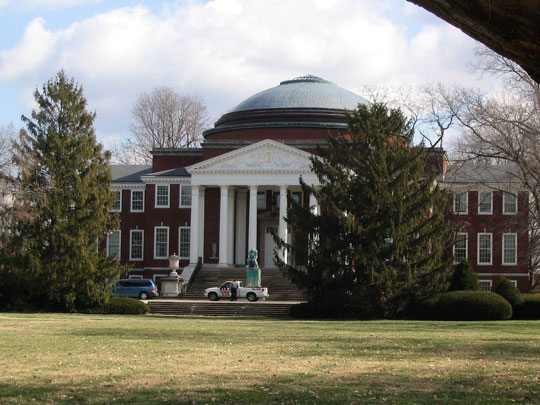
October 27, 2017; WDRB (Louisville, KY)
According to local Louisville television station WDRB, “Nearly five months after a “forensic investigation” detailed up to $100 million in losses through mismanagement and over-spending at the University of Louisville Foundation, the university still hasn’t decided whether to sue former President James Ramsey or other former board members or employees of the foundation.”
One step has been taken, which involves the development of an agreement between the University of Louisville’s board of trustees and the separate board of the university’s supporting foundation. According to the agreement, the university agrees not to sue the foundation for financial malfeasance provided that the foundation handles its affairs properly going forward.
The financial practices under question occurred during the presidency of James Ramsey. Ramsey had the unusual role of serving as president of both the University of Louisville and the University of Louisville Foundation. Ramsey’s salary as foundation president, at over $2.4 million a year, dwarfed his salary as president of the university, which Inside Higher Ed estimated to be $345,000.
Ramsey’s tenure coincides with the period of time that the forensic audit covered. That audit revealed that the Foundation had engaged in a range of questionable financial practices, resulting in losses for the Foundation of up to $100 million. The audit was released over five months ago. In addition to the possibility of the foundation or university board pursuing action against Ramsey, suing former board members or the staff of the foundation is also on the table.
Sign up for our free newsletters
Subscribe to NPQ's newsletters to have our top stories delivered directly to your inbox.
By signing up, you agree to our privacy policy and terms of use, and to receive messages from NPQ and our partners.
Our coverage of this issue of mismanagement has been extensive. We have covered the release of the forensic audit last June, the forced departure of the chief financial officer following that audit, the termination of a consultant’s contract two months ago who was arrested for theft, and the role of two local foundations who had financially supported the University foundation in pushing for the forensic audit in the first place and pushing for reforms to ensure that the practices revealed are fully addressed.
Many changes have already been effected since Ramsey’s resignation as foundation president in September of 2016. The board of directors was recreated in January of this year. While those involved have left, and the restructuring continues to evolve, the threat of lawsuits still hangs over the foundation. The foundation’s board does carry $25 million in Directors and Officers (D&O) insurance for protection against fraudulent acts; however, the better course would be to avoid being sued.
After months of closed-door meetings between the board of trustees of the university and the university foundation board, on Thursday, October 26th, the foundation’s board of directors approved the proposal by the U of L’s board of trustees which would keep the university from suing the foundation, “provided that the foundation continues to operate in the manner in which it’s committed to operate,” according to the foundation’s interim executive director, Keith Sherman.
Diane Medley, now the chair of the foundation’s board, stated that the agreement is intended to ensure that the foundation performs as a support organization independent from the university, which follows IRS regulations. Sherman said the agreement will “provide assurance and allay any concerns that what’s happened in the past isn’t going to happen again.”
No explanation has been offered as to why the university considered a lawsuit, and neither party has released a copy of the agreement to the public. Foundation officials have requested some minor revisions in the draft and expect it may be done by next week. Earl Reed, a foundation board member, stated that the pact contains “governance and operating procedures,” but David Grissom, who serves on both boards and is the chair of the university trustees, did not provide comment.—Marian Conway













